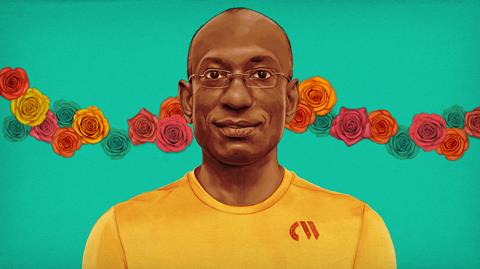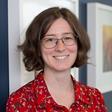The trailblazing computational chemist on the joys of teaching, inaugurating a virtual conference, and the importance of doing things the hard way

Ponnadurai Ramasami is a UNESCO chair of computational chemistry and leads the computational chemistry group at the University of Mauritius. He also founded and chairs the annual Virtual Conference on Chemistry and its Applications, and in 2016 received the Best Mauritian Scientist award.
I always say that there is no path that is made up of roses for you to walk. It’s better to walk a path where there are several difficulties, because these difficulties will make you stronger and more confident.
I am now a UNESCO chair in computational chemistry. I promote computational chemistry in Africa, run training, particularly in the region, interact with other UNESCO chairs and promote the public understanding of science. But there was no computational chemistry when I joined the University of Mauritius. I introduced it.
The computational chemistry module I introduced was an elective module. In the first year, out of a batch of almost 30 students, only four came to the first lecture. I was very worried, because I knew that there was a rule that you need to have at least 10 students to be able to run a module. After the lecture, I went straight to the head of the department and told him how many students I had. He said, ‘There are four? I thought you would get only one – go ahead.’ Now almost 80% of the students opt for computational chemistry.
Having sound training in basic computational chemistry can really help the students solve chemistry and interdisciplinary problems, which might be related to the country’s needs, and, in my context, problems relevant to Africa and possibly the world. The satisfying thing is that many universities have really tried to understand that it’s not good to leave the students to learn this from ‘Dr Google’.
I was a teacher in a secondary school. I really enjoyed teaching the students. At the university it’s a sort of teaching, but you are dealing more with adults. It’s more tutoring. But ultimately, the principle remains the same.
You have better sounds when you clap both hands
My observation is that students derive pleasure from understanding what’s going on. And this is your source of satisfaction – when something is difficult and you’re able to make it understandable to others. I teach mostly physical chemistry modules and the computational chemistry module. These modules are considered to be a bit tough. But I’ve tried my best to really make the subjects lively.
I organise a science week where we invite many secondary-level students to the University of Mauritius, and they’re exposed to some simple science experiments. The whole idea is to arouse their curiosity in science: ‘Aha, this is done in chemistry, this is done in biology, so possibly I will opt for this subject.’
In 2013 I thought, why not start a virtual computational chemistry conference. At that time, this was something fancy. I think there was only Skype, so the conference had to have its own platform built in-house. There were only about 30 participants in the first year. But I was not discouraged, because I had a firm conviction that this would be the future.
Things kept on moving until 2020, with Covid. Then I thought: why not extend the computational chemistry conference to all fields of chemistry? Oh, that was a brilliant idea. In the first year, we had almost 300 abstract submissions. We have an average now of about 250 abstracts admitted and about 1000 registered participants every year.
We usually have the conference in the week containing 12 August, because that is the birth anniversary of Erwin Schrödinger, the father of computational chemistry. We mark Schrödinger Day and International Youth Day on 12 August.
Research cannot be done in isolation. You need to collaborate. And it has to be two way traffic. You have better sounds when you clap both hands. If you just move one hand, you will not have any sound. People shouldn’t think: ‘Oh yes, this scientist is doing very well, so I will collaborate with him, so I will be able to get papers.’ That’s a very wrong idea.
My advice to young scientists is to be honest, be sincere, be patient. Try to learn from others. Don’t think that you will obtain everything in the easiest way. You will learn more by going the more difficult way.
I see many people coming for seminars without even a pen, without even paper, nothing. Wherever you go, whatever presentation you go to, there will be a message that might be important to you, that’s not in doubt. Write it down and keep it somewhere that might be useful to you in future.
I’m very spiritual. And I really enjoy running. I try my best to run at least 10k every day, and I participate in 10k races. Most of the time, I’m the last one. I’m joking, but my intention is to participate and to collect the T-shirts. I have many of them.

















No comments yet